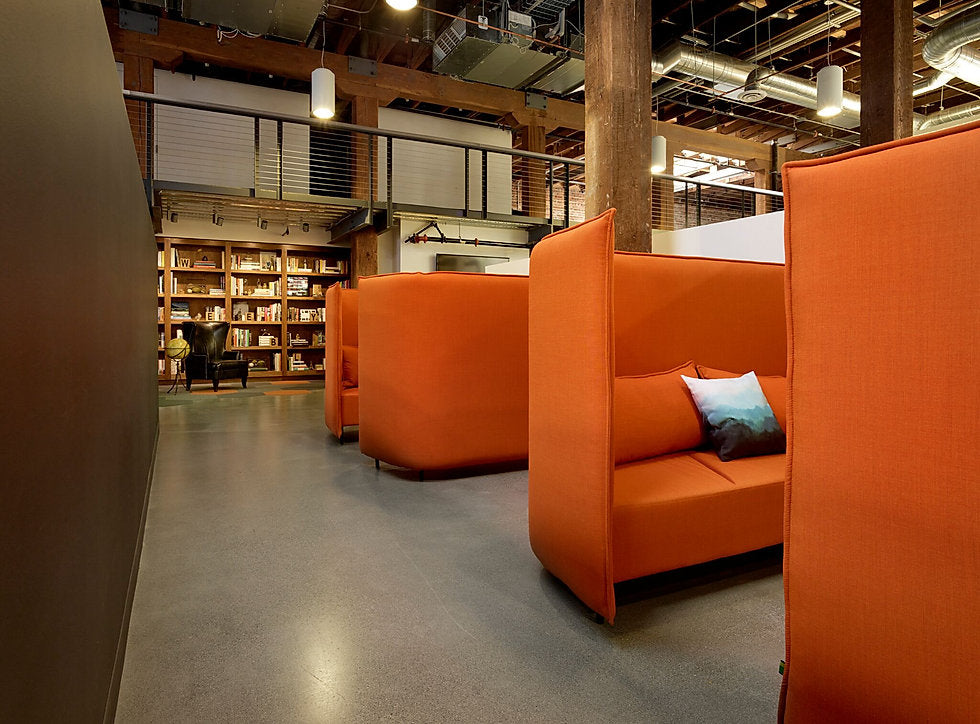
Waste in the UK: Tackling the Landfill Issue
Recycling efforts are improving in the UK as individuals and businesses become more committed to living sustainably. However, despite these advances, millions of tonnes of waste are still sent to landfill each year. Waste that goes to landfill includes non-recyclable packaging, commercial and biodegradable waste plus an estimated three million tons of office furniture. Items in landfill can take hundreds, or even thousands of years to decompose, and this process results in greenhouse gas emissions including 22% of the UK’s total methane emissions.
Here we look at how everyone can reduce their landfill waste and explore how The Office Crowd is providing a solution by tackling the amount of office furniture being disposed of.
How Individuals Can Reduce Their Landfill Waste
Small changes can make a big difference and making some tweaks to your habits could have a significant impact on the amount of landfill waste you produce.
Review Your Domestic Recycling
Ensure that your household waste is properly separated into the appropriate recycling bins to optimise your at-home recycling. You can further reduce the volume of waste that goes to landfill by finding ways to recycle items that are not currently accepted by household recycling bins. For example, soft plastics such as carrier bags and films, can now be recycled at supermarkets.
Sell or Donate
From home furnishings to clothing, toys and books, your unwanted items could find a new home with someone else. Consider donating or reselling items that are still in good, usable condition through sites like eBay, Depop, Facebook Marketplace or at a local car boot sale.
Switch to Reusable
Take a look at the single-use items you regularly throw away and consider if you might be able to swap them for reusable options. By switching from disposable to rechargeable batteries, exchanging sandwich bags for beeswax wraps or trading cotton wool wipes for washable bamboo pads, you may be able to lower the volume of waste you create.
Shop Sustainably
Food packaging represents a significant proportion of household waste and you may be able to reduce the amount that you create by making use of zero waste shops or re-filleries. These stores encourage plastic-free shopping by offering reusable or non-plastic containers for a whole range of items such as pasta, pulses and washing-up liquid.
How Businesses Can Reduce Their Landfill Waste
Sustainability is now a core business concept with every process and product being scrutinised to find more environmentally-friendly ways of working. For many businesses this will include finding ways to reduce the amount of commercial waste that is sent to landfill.
Engage Employees
If a recycling programme is to be implemented successfully, it will require support from the business’s employees. As well as providing access to the appropriate recycling bins, ensure that staff have been given the information they need to use them correctly. Providing information on the business’s sustainability targets may also help to encourage building users to reduce their waste.
Ditch Disposables
In large offices disposable items such as antibacterial wipes, takeaway cups and coffee pods can generate a significant volume of landfill waste. By providing more sustainable alternatives such as travel mugs, a coffee machine that uses ground coffee and refillable antibacterial sprays, offices may be able to cut the amount of landfill waste that is generated every day.
Invest in Sustainable Brands
Whether purchasing office chairs or staff uniforms, engaging with sustainable brands can help businesses to limit their landfill waste. Sustainable brands focus on creating products that can easily be recycled or repaired rather than thrown away. This enables businesses to move away from traditional linear buying strategies and progress towards a sustainable circular model that generates no waste.
How The Office Crowd Is Reducing Landfill
Here at The Office Crowd, we are proud to offer businesses and individuals access to world famous office furniture brands at a lower cost to both the environment and the buyer. Every item on our site has been diverted from landfill and then individually assessed before being professionally cleaned, expertly repaired and reupholstered. All of our furnishings are then backed by a 12-month warranty to ensure the highest levels of quality and complete peace of mind. This circular model offers each piece a new lease of life and prevents thousands of desks, chairs and storage solutions being thrown into landfill each year.
In addition to selling high quality second-hand office furniture, The Office Crowd can support you to divert your used furnishings from landfill. If you have branded office chairs, desks or storage items that you no longer need and that are in good condition, our team would be delighted to speak to you about our buy-back options. Alternatively, if your furnishings are not suitable for reuse, our team of experts can recycle the core materials so that nothing goes to waste.
Whether you’re updating your home office or redesigning a commercial premises, The Office Crowd can help you create workspaces that are both stylish and sustainable. Contact our team today and find out how our preloved products can help you to lower the environmental impact of your business.



